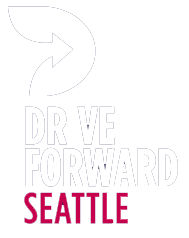Sign Our Letter to Seattle City Council
Drive Forward is sending a letter to the Seattle City Council expressing our concerns ove the new “PayUp Ordinance”. This proposed law could greatly impact how you earn on platforms such as DoorDash, UberEats, Task Rabbit, Rover, and many others. By signing the letter you’ll indicate your support for Drive Forwards proposal to no only create a meaningful minimum earnings standard, but also establish a suite of protections for independent contractors, including Sick and Safe Time, Restroom Access, Deactivation Review and more.
Dear Seattle City Council,
The undersigned members of Drive Forward are writing today to express our disappointment in the overly broad scope of the PayUp Ordinance, the flawed implementation of an earnings standard, and the lack of transparency in the expected future ordinances necessary to implement this ordinance.
This ordinance attempts to treat all independent contractors the same regardless of the many differences in what we do all while creating a cap on earnings by tying the earnings standard to each task/job. Drive Forward supports a minimum earnings standard that guarantees at least the minimum wage for independent contractors. However, there are significant differences in how independent contractors earn across the various platforms. Contractors on TaskRabbit or Rover can set their own rates, whereas DNC contractors cannot. Services provided on some platforms can be pre-scheduled and can last for days, weeks, or months. Other platforms are on-demand and offers are performed in minutes or hours. These differences are too significant to lump together in one hasty proposal without the research and studies to prove which variables or formulas represent the work we do. Any minimum earnings standard set by the City of Seattle needs to reflect these differences in the ordinance and not leave it to rulemaking.
Using a per task/job mechanism in the calculation of the earnings standard will, in effect, be a cap on earnings. Once the proposed standard is set in law, the companies that control the earnings rate will have little incentive to pay more than the minimum. To earn more than the minimum the independent contractor will have limited options available to them. They could cut costs incurred below the reimbursement levels established in the ordinance by cutting back on vehicle maintenance for example, or they could work more than 60 minutes of each hour by always accepting multiple offers simultaneously across platforms. In other words, independent contractors must work harder, not smarter, and possibly sacrifice safety to cut costs. This is not the effect this ordinance should have.
Additionally, taking up these three sections on flexibility, transparency, and an earnings standard without including the other expected pieces of this package around deactivation, background checks, anti-discrimination, etc. shows a complete lack of transparency in the legislative process. Having this ordinance be proposed as a standalone piece of legislation does a great disservice to our members. We have spent months in stakeholder meetings discussing more than just earnings standards. To not propose the complete package of contractor protections simultaneously in a suite of ordinances makes it harder for our members to understand how each proposal fits together. Protections such as sick and safe time, restroom access, deactivation review, and others deserve to be discussed as a whole package not as a piecemeal set of ordinances so as to disguise from the public the full effects of the ordinances combined.
Drive Forward has put a meaningful alternative proposal on the table, and to date only one City Councilmember has discussed it with us. Our proposal would establish a minimum earnings standard for on-demand offers based on a weekly standard that bumps up earnings for contractors that fall below the minimum, making it possible for contractors to work smarter to earn more than minimum wage. Drive Forward’s proposal also contains meaningful contractor protections in concert with the earnings standard, not separately from, as we want every gig-contractor to be fully informed.
This City Council can, and should, do better to provide meaningful minimum earning standards reflective of each unique sector of the gig-economy, and not some half-baked one-size fits all ordinance that fails all independent contractors. We strongly request the City Council listen to all stakeholder feedback and make significant amendments to this flawed ordinance.
Sincerely,
